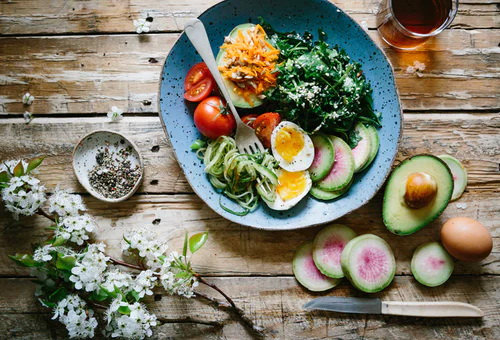Everyday numerous acne suffers turn to alternative methods to treat their acne. The two main reasons for the growing popularity of such treatments are; people looking for medication with less harmful side effects then tradition acne treatments. Secondly are the people who have been unsuccessful with the various over the counter and prescription options. Generally alternative treatments are not regulated by the FDA and hence you will not receive much guidance from medical doctors on their use. Word of month and the alternative medical community is the main source of information on such options.
For teenage girls and women herbs that balance hormone levels such as chaste berry, black cohosh, dong quai, evening primrose, wild yam, and red clover are quite commonly tried. Herbalists believe that these herbs balance the female sex hormone estrogen and will counterbalance the hormone androgen. Since androgen is believed to trigger excess sebrum production, which can cause hair follicles to clog and acne to form, acne could be prevented or reduced.
Herbs that are thought to help reduce inflammation and infection can be used for both male and female acne suffers. Echinacea, licorice, dandelion root, and burdock are all thought to contain properties that help with the above by killing bacteria. The herbs salvia and red peony are also used sometimes to help acne suffers improve their skins ability to heal.
Vitamin B5 also known as pantothenic acid is a commonly used vitamin to treat acne. It become widely popular after Dr. Leung a Hong Kong acne expert published a paper on its effectiveness. His paper was based on the theory that acne sufferers are deficient in vitamin B. The result is excess sebum production, the root cause of clogged hair follicles leading to acne. Dr Leung also tested his theory through a clinical trial where 100 acne suffers were given 10g of B5 daily, after six months Dr. Leung’s test group had a ninety percent success rate.
Topical treatments such as tea tree oil and seaweed, which are both believed to have powerful antibacterial properties are also widely regarded as being effective on acne inflammations. Tea tree oil comes from the ti tree in Australia and seaweed from the oceans.
A common belief is that controlling stress reduces the severity of acne. So anything you can do to alleviate stress will help. Many acne suffers turn to exercise for stress relief, yoga being very popular. Aromatherapy can also be used in stress relief, along with acupuncture, and meditation.
While the predominate reason many people turn to alternative acne treatments is to reduce the harmful side effects of tradition medicines the reverse may actually be true. Caution should be used before trying any alternative treatments. They may have adverse side effects not common known due to the lack of regulations on most alternative treatments.























